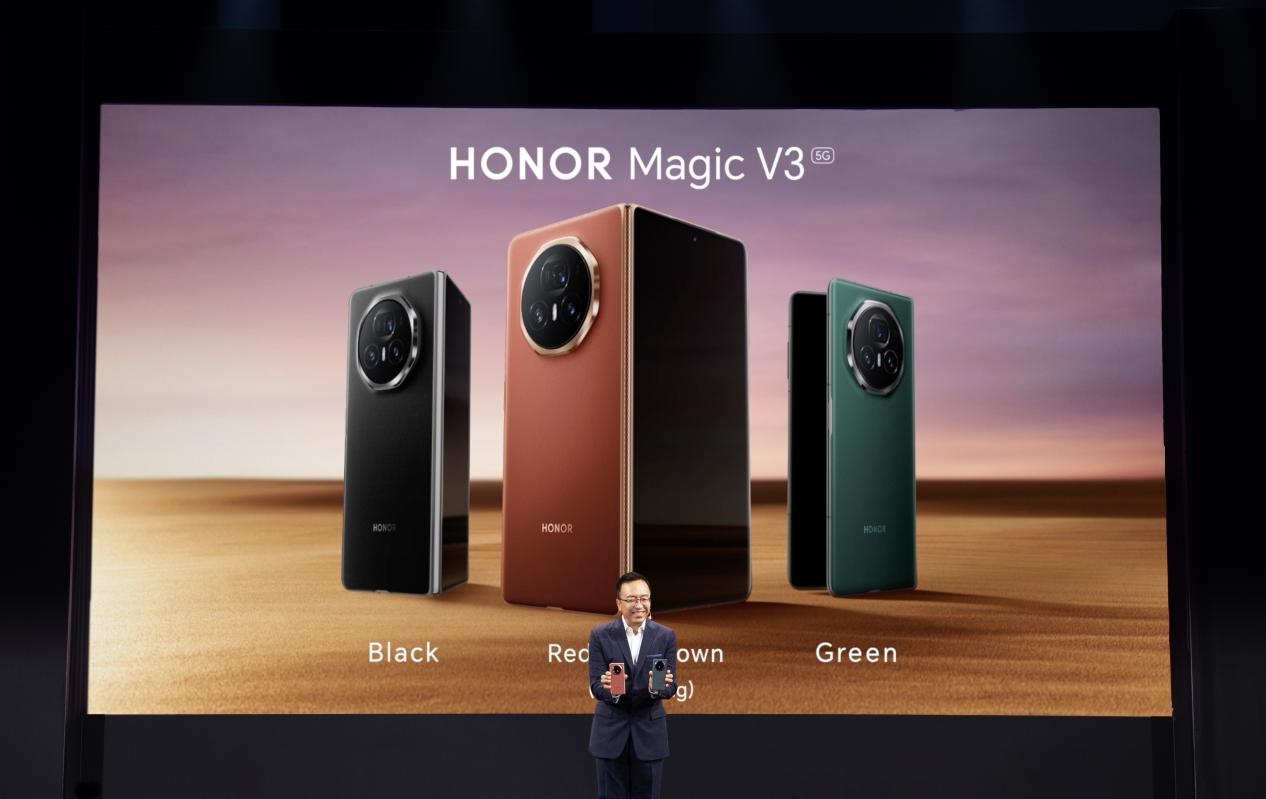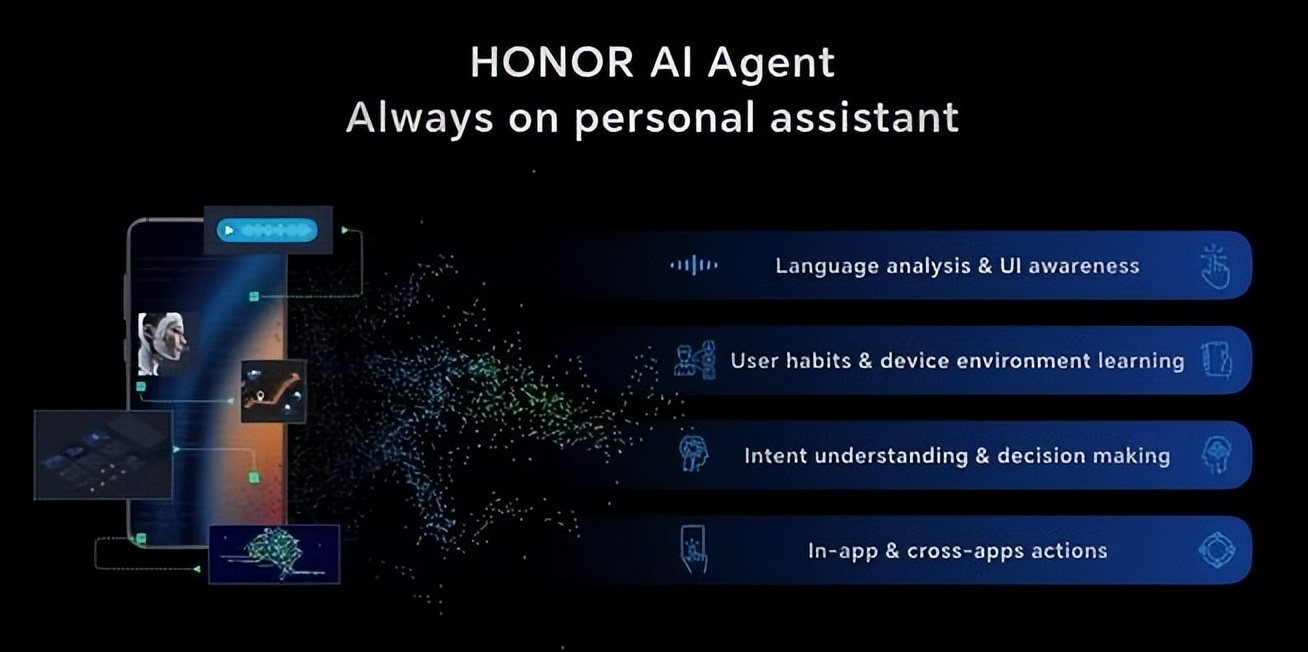First AI Agent released, Honor brings mobile phones into the 'autonomous driving era'
![]() 09/10 2024
09/10 2024
![]() 542
542
The global smartphone market, which has seen shipments grow for three consecutive quarters and gradually emerged from the shadows, ushered in a series of major press conferences this September: Apple brought the iPhone 16, Huawei unveiled the Mate XT, and Honor, which traveled to Germany to participate in IFA Berlin, pulled mobile phones into the 'autonomous driving era' with the industry's first AI Agent.
[1]
This year marks the centenary of IFA Berlin.
Honor, which recently topped the foldable phone market in Western Europe in the second quarter with the Magic v2, attaches great importance to its participation in the exhibition. Not only did it choose to globally launch its new foldable flagship, the Honor Magic V3, here, but it also unveiled a full range of flagship devices, including the industry's first 3K OLED tablet, the MagicPad 2, and Honor's first AI-powered laptop, the MagicBook Art 14 Snapdragon Edition, based on the Qualcomm® Snapdragon® X Elite platform.

The Magic V3 is another lightweight and foldable product from Honor, following the Magic V2, which ushered in the 'millimeter era' of foldable phones. It introduces the innovative Honor Lu Ban architecture, utilizes 19 innovative materials and 114 micro-structures, and breaks the industry's lightweight record held by the Magic V2 for 12 months, reducing the folded body thickness from 9.9mm to 9.2mm, redefining the new height of lightness and thinness.
At the same time, equipped with a DSLR-level Honor Hawkeye camera, Qualcomm Snapdragon 8 Gen 3 processor, and a built-in 5150mAh battery, the Honor Magic V3 achieves new breakthroughs in performance, imaging, and battery life while maintaining its lightweight design, earning it the Best Smartphone Award at IFA Berlin from renowned tech website Android Authority.
Compared to hardware upgrades such as ultra-lightweight and ultra-thin designs, Honor's release of the HONOR AI Agent at the exhibition is even more noteworthy as a leader in edge AI. This is the first multimodal personal AI agent in the global mobile phone industry's open ecosystem.
To better demonstrate the powerful capabilities of the HONOR AI Agent, Honor conducted a scene demonstration at the exhibition: After calling out Honor's phone assistant YOYO, the staff member asked which items were currently using automatic renewal. YOYO then took over the phone, automatically checked each payment channel such as Alipay and WeChat for automatic renewal items, and presented the final results to the user for decision-making on whether to cancel each one individually or all at once.
[2]
Behind this seemingly simple function lies a value comparable to the advent of the autonomous driving era in the new energy vehicle industry.
Since the release of ChatGPT in November 2022, the mobile phone industry has witnessed a wave of intelligence, with overwhelming features such as polishing user inputs into specific styles, converting audio recordings in Chinese and English into text, and intelligently retouching photos, making the market extremely lively.
However, in Honor's view, these are relatively low-level functional applications that are still far from true artificial intelligence. According to Honor's systematic AI four-tier strategic architecture proposed in March this year, these applications belong to the third and fourth tiers: image matting, photo rendering, document summarization, etc., are AI applications on the client side, belonging to the third tier; while functions such as question and answer are the presentation of AIGC and large language models on mobile phones, belonging to the fourth tier.

In contrast, Honor aims to achieve higher-level applications: the first tier involves using AI to achieve cross-system and cross-device integration; the second tier involves using AI to reconstruct terminal operating systems, making them increasingly intuitive and user-friendly over time.
In simpler terms, third- and fourth-tier applications are essentially just useful tools for users. However, if the first and second tiers can be achieved, it means that AI will be able to understand your intentions, automatically call upon various relevant applications, and truly help you accomplish tasks and solve your problems.
In the scene demonstration, the HONOR AI Agent precisely realizes such functions. Upon receiving a user's request, the HONOR AI Agent understands the intent, converts it into corresponding tasks, decomposes the tasks, calls upon different applications to complete them, consolidates the results, and finally feeds back to the user.
In this process, the HONOR AI Agent is no longer a stand-alone application but an assistant with extensive permissions and capabilities, capable of assisting the phone's owner in completing various tasks. Following this technical approach, with continuous reinforcement learning and data training, the HONOR AI Agent will gain the ability to do even more in the future.
After the first OpenAI Developer Conference on November 7, 2023, Bill Gates published a lengthy essay outlining his vision for the future of AI. He predicted that humans could expect the official arrival of AI agents within the next five years, describing them as "the biggest change in computing since the transition from typing commands to clicking icons," a revolution that will disrupt the software industry and change the way everyone interacts with computers.
Nine months later, while the PC-based AI Agent has yet to arrive, the mobile-based HONOR AI Agent has been confirmed for its debut on Honor's upcoming flagship Magic7 series, which is set to be released within the year. Amidst the wave of innovation sparked by AI technology, Honor, with its pioneering spirit, is poised to bring us even more surprises.
——END——
Welcome to follow [Huashang Taolue] to get to know influential figures and read tales of strategy.
All rights reserved. Private reprinting is prohibited.
Some images are sourced from the internet.
In case of infringement, please contact us for deletion.








